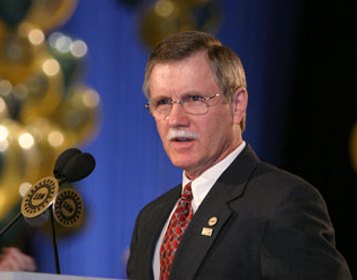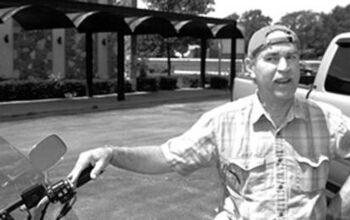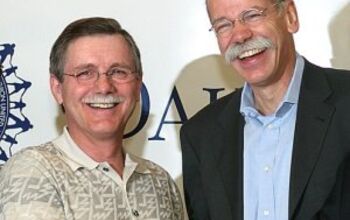UAW – Big 2.8 Negotiations: No News is No News
It's been three weeks since The Big 2.8 automakers began negotiations with The United Auto Workers (UAW). So far, neither side has said word one about their progress, which Wall Street and other industry analysts [wrongly] consider the key to Detroit's future. According to the news hungry scribes at the International Herald Tribune, that's a good thing, not a bad thing. The Trib trotted out Global Insight auto industry analyst Aaron Bragman. "'Historically, both sides have aired grievances publicly when things were not going well. If things were going poorly you'd be hearing a lot of saber rattling." Apparently oblivious to the "Yeah, TOO quiet" school of thought, Bragman then shared a little inside information. "From what we hear, they're sitting down and they are making some serious propositions back and forth. We'll see what comes of it." David Cole, chairman of the Center for Automotive Research in Ann Arbor, agrees. "I think they're making pretty good progress, and I think there is a mutual understanding of what they have to do." For this they they get paid?
More by Robert Farago


































Comments
Join the conversation
I read on Bloomberg ? that Chrysler does not want to setup the VEBA fund and is looking for more cash. This is causing problems for Ford and GM who need a fund to solve their medical liabilities problems.
I seems a safe bet that after these negotiations are over, the train will no longer be heading for disaster at 100 miles an hour, but at 97 miles an hour instead.
Three thoughts: 1) It's too early to tell -anything- at this point. All parties know that this is the most important negotiation ever, so they are moving carefully and slowly. 2) The big 2.8 have a new weapon - the threat of chapter 11 - and the UAW knows it. But no one really knows what using it would mean. And none of them want to venture into uncharted territory. 3) All the players in this have shown an ability - almost a knack - for breathtaking stupidity. Fun times.
What they decide is irrelevant. The public is voting with their pocketbook. Any change would have to be of enormous magnitude, big enough to change the public mind.